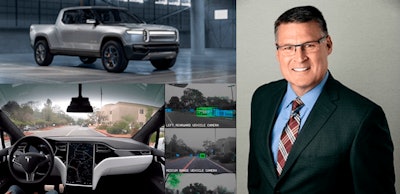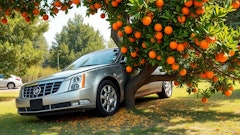
Commitment controversy
Newly-appointed Honda Canada CEO Jean-Marc Leclerc has said that Canada will not meet its greenhouse gas emissions targets in pursuing a zero-emissions vehicle policy alone.
During an interview with the Windsor Star, Leclerc said there is not enough demand for EVs yet for Canada to achieve its GHG commitments to the Paris Accord.
“[The federal government is] not going to achieve it with EVs simply because of cost, and forcing manufacturers to sell them at a loss,” said Leclerc.
“Nobody wants to talk about how much this costs and what people are prepared to pay. They’re just forging forward thinking we have all the solutions and we don’t. That’s why we’re really concerned about governments putting out more zero-emission mandates that will not really achieve a great deal of GHG reduction in the short term.
Leclerc said only about two percent of the 28 million vehicles on the road in Canada are EVs.
Currently, the federal government aims to have five to 10 percent of all new vehicle sales be zero-emission vehicles by 2030 with 100 percent of new sales being zero-emission by 2040.
He said Honda Canada has been pushing the federal government to take a more balanced approach to reduce GHGs. He said it will also be a mistake to have politicians dictate technological solutions to manufacturers.
“In our discussions with the government we basically tell them just give the GHG reduction targets you’re looking for and let us figure out how to achieve them,” he said.
Pay as you drive
Last week Tesla CEO Elon Musk confirmed that the company is working on a new pay-as-you-go subscription plan for its ‘Full Self-Driving Capability’ package, which currently boasts a $9,200 price tag in Canada.
During Tesla’s quarterly earnings call on Apr. 30, Musk said the system could become available to customers as a monthly subscription service later this year.
Musk recently said the current $9,200 price tag is likely to increase on July 1, though it did not provide an estimated cost for the monthly subscription.
Last year, Tesla released its Full Self-Driving Capability package on its app and made it available for purchase through a one-click process—spurring accidental purchases and complaints from Tesla owners worldwide.
The package is designed to enable a vehicle to conduct short and long-distance trips with no action required by the person in the driver’s seat.
Electric abandon
Ford and Rivian have abandoned plans to develop an all-electric model for the Lincoln brand, citing the ongoing pandemic as a concern.
Lincoln’s dealers were informed of the decision last Tuesday. Officials said it still plans to have its own EV eventually and could potentially pursue a product with Rivian in the future, but it was shelving the project due to the “current environment.”
“Our strategic commitment to Lincoln, Rivian and electrification remains unchanged and Lincoln’s future plans will include an all-electric vehicle consistent with its Quiet Flight DNA,” Lincoln said in a statement.
Announced in January, the EV was to be Lincoln’s first battery-electric model. The company planned to build the vehicle on Rivian’s skateboard platform, but neither company had provided details on what type of vehicle it would be, where it would be assembled or when it would go on sale.
Ford Motor invested US$500 million in Rivian last year.






















